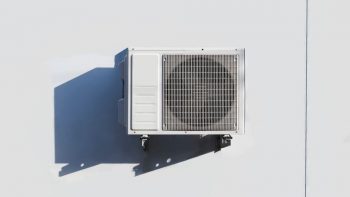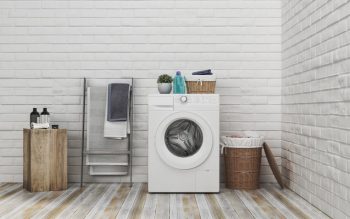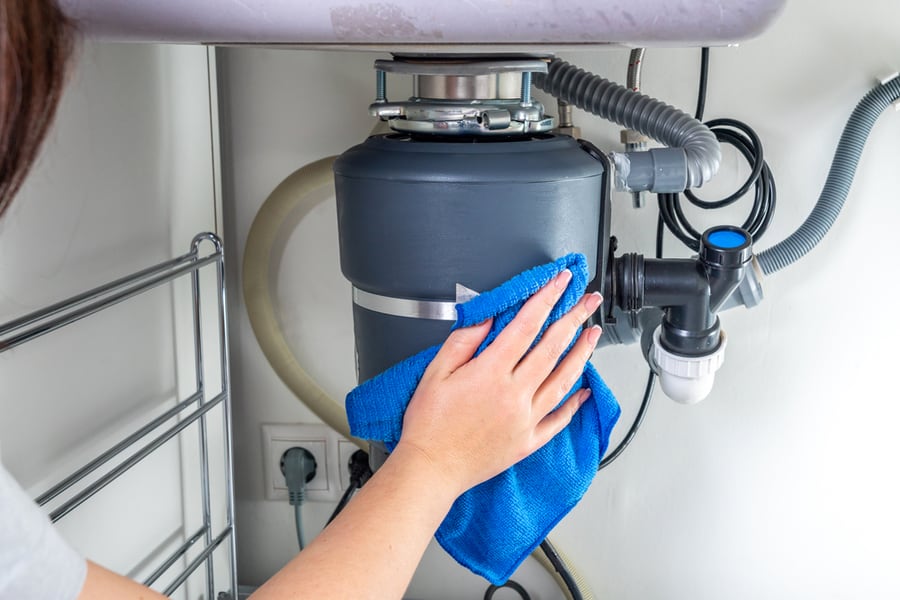
A functioning garbage disposal is an essential tool in any kitchen, making it easy to dispose of food scraps and keep your sink clean. However, a garbage disposal can become prone to rust over time, leading to serious problems.
Are you noticing rust stains building up in your garbage disposal? Don’t worry; it’s a common issue, especially with older disposals.
Various factors can cause rust, but with some simple maintenance and preventive measures, you can keep your garbage disposal free from rust.
This article guide will show you how to keep your garbage disposal from rusting and help extend its lifespan. So read on, and find out how to keep your disposal functioning like new!
Here’s a quick overview of how to properly use your garbage disposal for maximum efficiency:
- Always run cold water for several seconds before and after using the unit. This will help flush away any residue and prevent blockages and rust build-up.
- Cut large items into smaller pieces before putting them in the garbage to avoid blockages.
- Avoid overfilling your garbage disposal, and turn off the unit when not in use.
- Put a few ice cubes in the unit to clean the blades and keep them rust-free.
- Don’t put any of the items listed in this article down your disposal, as this could damage the blades and cause rust over time.
- Run lemon or citrus peels through the disposal occasionally to freshen it up and remove any lingering odors.
- Inspect the unit regularly for signs of damage or rust; if you notice any, take action immediately to prevent further damage.
Following the steps in this article will help you ensure your garbage disposal remains in top condition and continues to operate efficiently for years to come.
So, let’s dig deeper into the causes of rust in garbage disposals and the steps you can take to prevent it.
What Causes Rust in Garbage Disposal?
In general, exposure to water and acidic substances are the main causes of rust in garbage disposal. Materials (especially steel) and food scraps left in the disposal can also contribute to rust build-up.
Here are a few other common reasons for rust build-up:
Lack of Maintenance
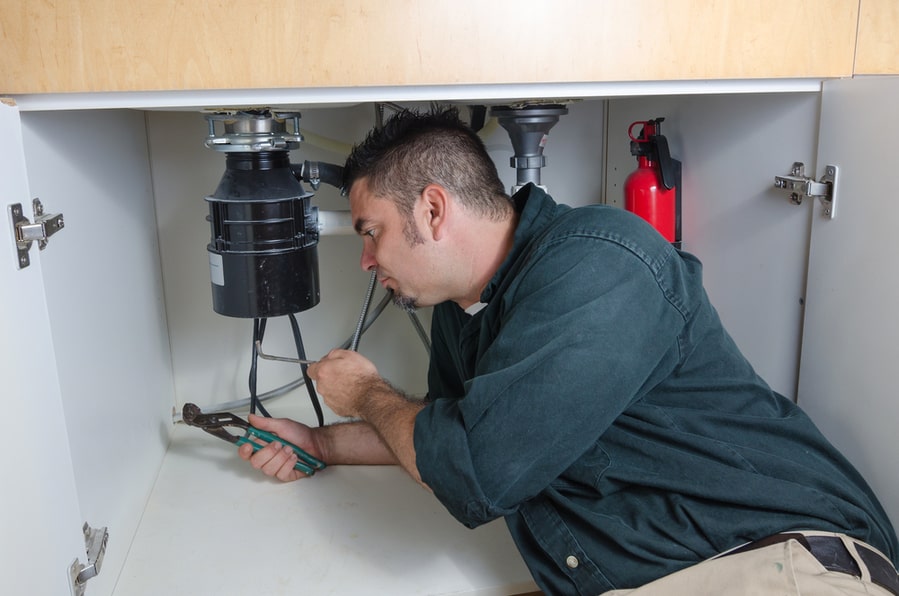
One of the most common causes of rust in a garbage disposal is lack of maintenance. When a garbage disposal is not cleaned regularly, it can become clogged with food scraps and debris, creating an environment conducive to rust formation.
Moreover, if the disposal is not used often, the blades can become dull and ineffective, causing them to rust over time.
Chemicals in Water

Another factor contributing to rust build-up in a garbage disposal is the presence of chemicals in the water. Some areas have hard water, which contains high levels of minerals such as calcium and magnesium.
These minerals can build up inside the disposal and cause rust on the metal components.
Material of the Disposal
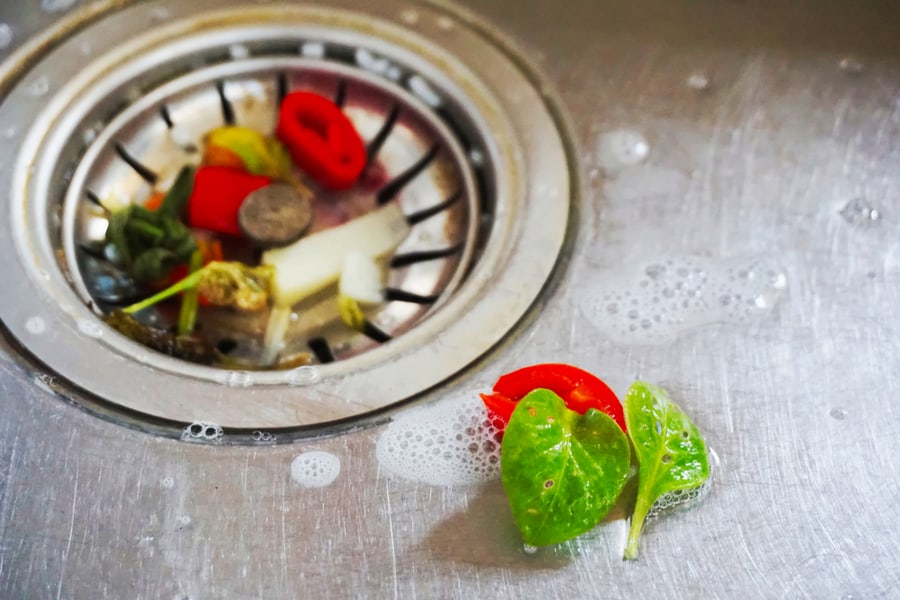
The material of the disposal can also play a major role in rust formation. Disposals that are made of lower quality or less durable materials are more prone to rusting than those made up of stainless steel.
Stainless steel is a corrosion-resistant material that is less likely to rust, making it the best option for garbage disposal.
Improper Installation
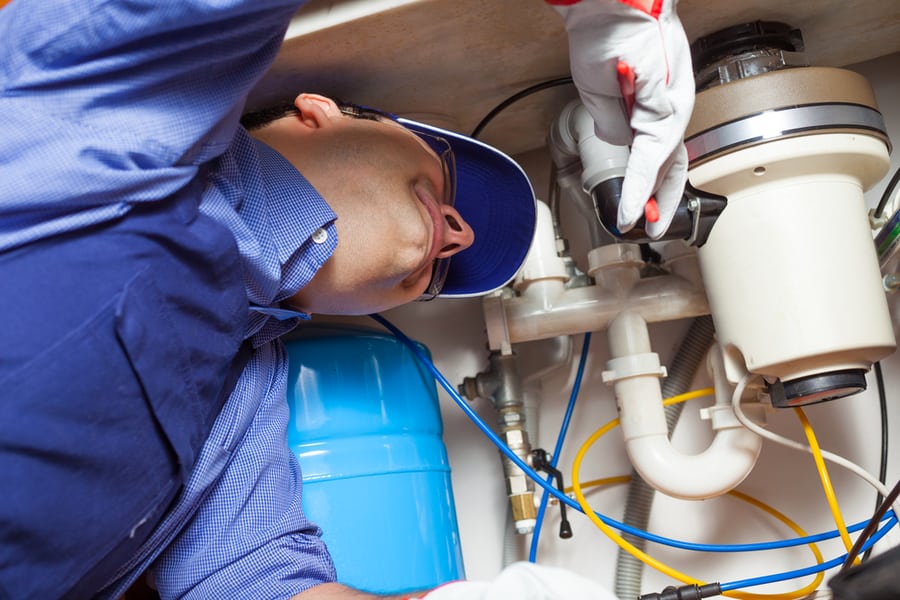
Improper installation of a garbage disposal can also lead to rust formation. If the disposal is not installed correctly, it can cause leaks, leading to water damage and rust formation.
Additionally, if the disposal is not installed on a level surface or if it’s not properly secured. This can cause vibrations and movement, which can cause the garbage disposal to wear down and rust over time.
4 Ways To Keep Your Garbage Disposal Rust-Free
Fortunately, there are a few ways you can keep your garbage disposal from rusting:
1. Clean Your Garbage Disposal Regularly
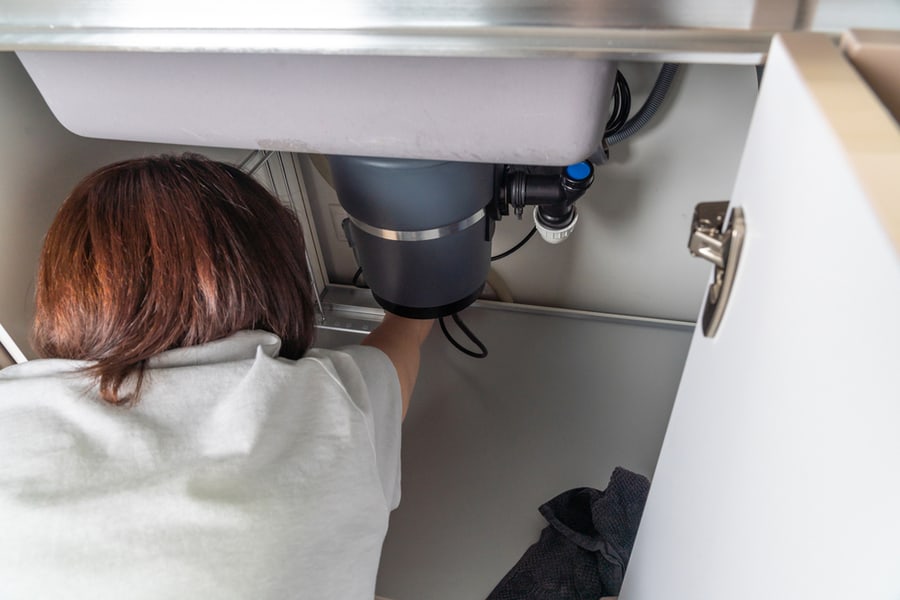
One of the most effective ways to prevent rust in your garbage disposal is by cleaning it regularly. This involves removing any food scraps or debris that may have accumulated in the unit and cleaning the blades and internal parts of the disposal to prevent rust build-up.
In addition to regular cleaning, it’s also important to avoid putting certain items down the disposal that can contribute to rust formation.
These include grease, oil, bones, and fibrous foods like celery and corn husks.
By cleaning your garbage disposal regularly and avoiding items that cause rust, you can keep your disposal functioning properly and extend its lifespan.
Only use cold water when running the garbage disposal. Hot water can cause grease and oils in the food particles to solidify and stick to the blades and interior of the disposal, leading to rust and corrosion over time.
2. Choose Rust Resistant Material

Another way to keep your garbage disposal from rusting is by choosing a unit of rust-resistant materials. Stainless steel is a popular choice due to its corrosion-resistant properties.
This material is especially beneficial if you live in an area with hard water or chemicals in the water supply. On the other hand, if you are using a garbage disposal or any other material, it’s important to take extra precautions to prevent rust from forming.
This may include using rust inhibitors, cleaning the unit regularly, and avoiding items that can contribute to rust formation.
Running lemon or citrus peel through the garbage disposal now and then is recommended to help freshen the unit. The citric acid in the peels can also help remove debris and prevent rust.
3. Avoid Scratching or Damaging the Disposal
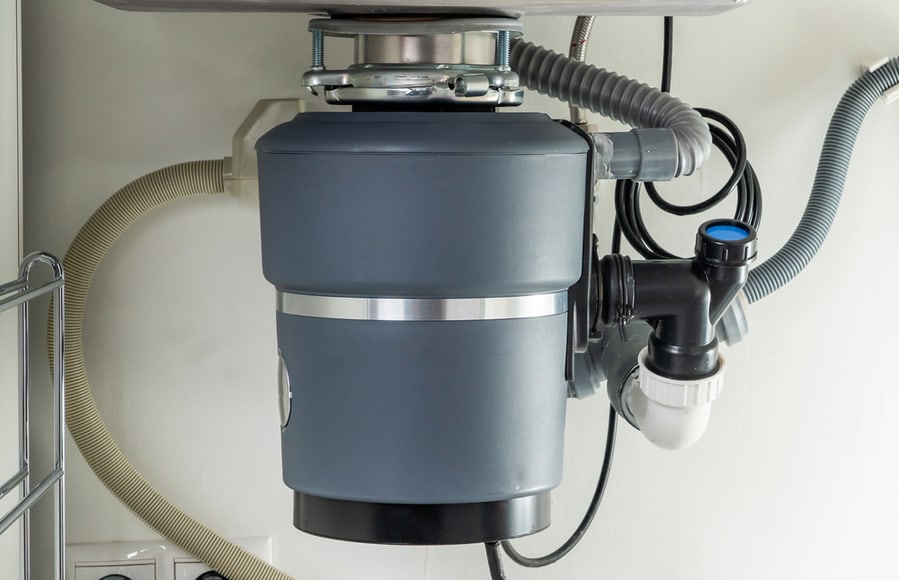
It’s also important to avoid scratching or damaging your garbage disposal. This includes avoiding harsh chemicals, scouring pads, or other abrasive materials when cleaning the unit.
Also, avoid putting pits of fruits and vegetables, eggshells, and corn husks down the disposal. These can cause scratches and damage, leading to rusting over time. In case of accidental damage, remove the object if possible and rinse the disposal before turning it back on.
Cut large items into smaller pieces before putting them down in the garbage disposal to avoid any potential damage.
4. Use Your Disposal Regularly To Avoid Rust
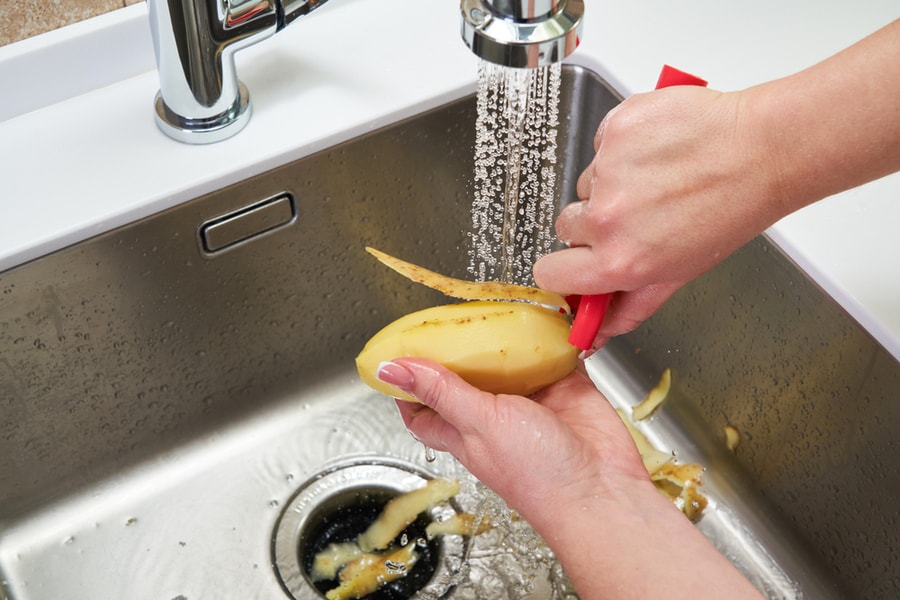
Using your garbage disposal regularly is another way to prevent rust from forming. When the disposal is not used frequently, the blades and internal parts can become damp and rust.
By using the disposal regularly, you can keep the blades and internal parts functioning properly, which can help to prevent rust from forming.
Additionally, regular use will help to keep the blades sharp, making them more efficient in grinding food waste and preventing clogs.
Always run cold water for seconds before and after each use to help flush out any food scrap and debris.
How To Remove Rust From Your Garbage Disposal?
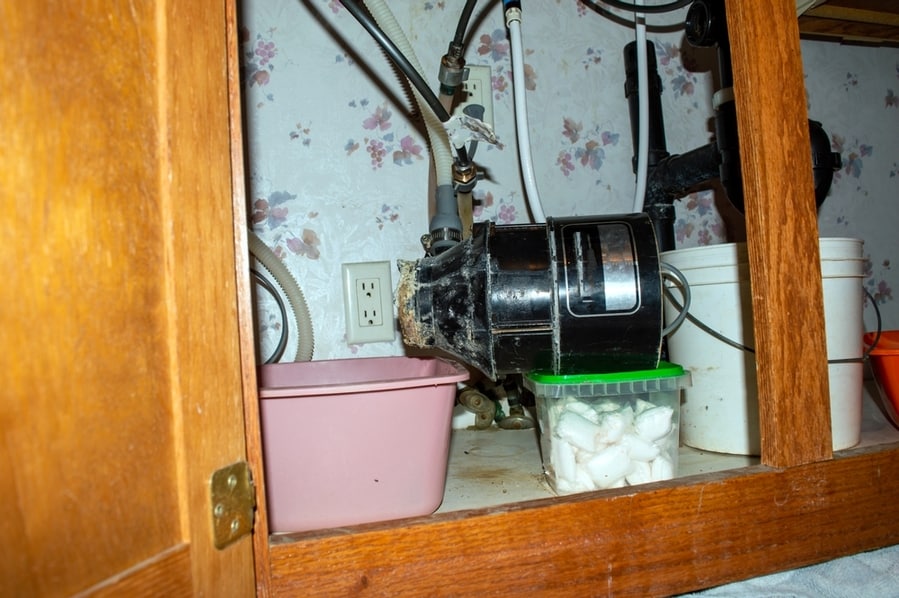
Fear not if rust has already formed on your garbage disposal – it can be removed. Here is a complete process of how to do it quickly, easily, and efficiently.
You will need the following:
- 3-6 tablespoons of salt.
- 1 cup of lemon juice.
- Ice cubes.
- A cloth or scrubbing brush.
- A multipurpose cleaner.
Instructions
Start by mixing salt and lemon juice in a bowl. Stir the mixture until it is fully combined. Next, clean any food waste inside the garbage disposal and let some water run to flush out any leftover residue. Then, pour the salt-lemon mix into the disposal and let it sit there for around 24 hours.
Note: Do not use the system during this time.
After the mixture has had enough time to work its magic, run some cold water, add a few ice cubes to the disposal, and turn it on for 15-30 seconds.
This will help scrape any residual rust away from the blades. Lastly, use a cloth or scrubbing brush to remove any remaining rust, and finish off using a multi-purpose cleaner to clean the unit thoroughly.
Please don’t use harsh or abrasive chemicals to remove rust from your garbage disposal, as this could damage it. Also, don’t scrub too hard, as this could cause scratches to the unit.
What Not To Put Down a Garbage Disposal?
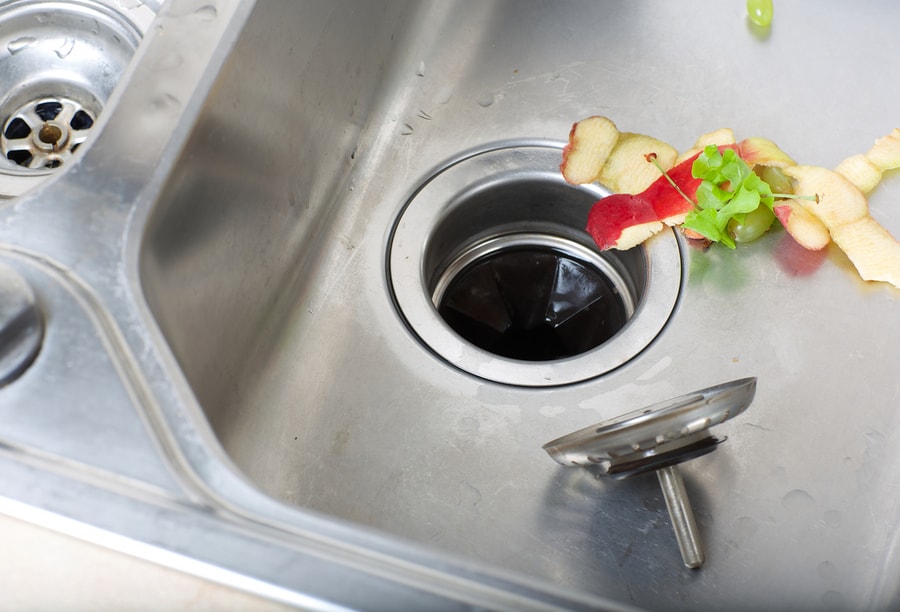
Despite being an incredibly useful appliance, not all food waste is suitable for disposal. Here are some of the items you should avoid putting down on your garbage disposal:
- Bones
- Coffee Grounds
- Large seeds and nuts such as walnuts and almonds
- Fibrous vegetables and string foods such as celery and onion skins
- Grease and oils
- Eggshells
- Metal Objects
- Plastic Items
Remember that your garbage disposal is not a substitute for the trash can. Avoid putting any large items, such as avocado skins, down the disposal and, instead, put them in the trash for proper disposal.
Before attempting any of the procedures mentioned in this article, ensure to unplug the unit from the power supply and exercise extreme caution. If unsure of any step, it’s best to call a professional for help.
It is also highly recommended to always consult the manufacturer’s instructions and warnings before attempting any repair or maintenance on your unit.
Conclusion
Garbage disposals are an incredibly useful appliance, but only when used correctly. Taking proper care of your garbage disposal will help ensure that it runs smoothly and efficiently for years to come.
Always remember to avoid putting anything down the disposal that is not suitable for it. Keep the unit clean and lubricated to prevent rust from forming.
Lastly, if you are ever in doubt about what to do, unplug the unit from the power supply and call a qualified technician.
This article has helped teach you how to dispose of your garbage. If you still have questions or concerns, please don’t hesitate to contact us; we’re here to help.

